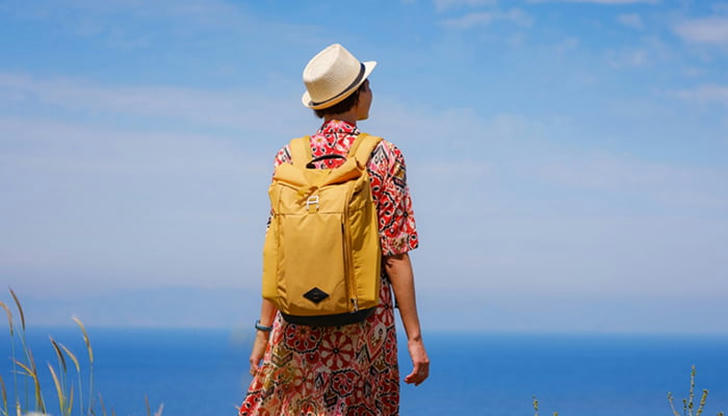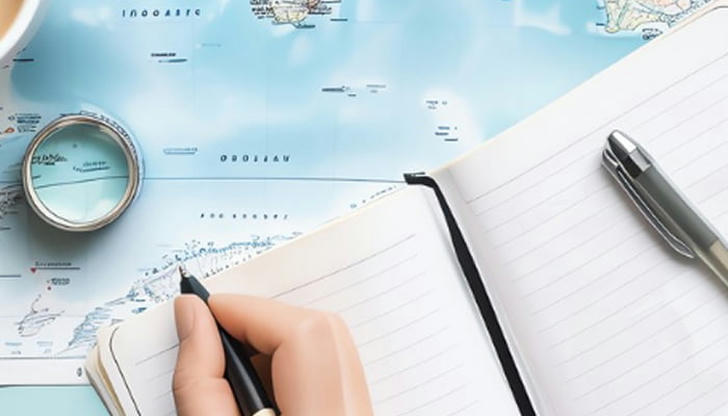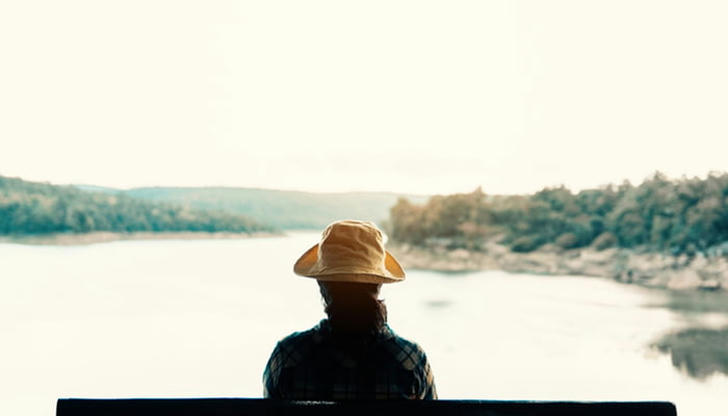Traveling Solo After 50: 7 Facts You Need to Know (From Someone Who’s Been There)

Solo travel after 50 isn't just about ticking destinations off a list — it's about freedom, reflection, and smart decision-making. But here’s the truth: once you hit 50, your needs on the road are different. Not worse. Just different. And if you're traveling alone, you won't have someone to bail you out if things go sideways. So forget the generic tips — here’s what you really need to know.
1. Don’t Rely on Your Phone — Always Have a Plan B

Yes, smartphones are amazing. But if you’ve ever found yourself in a train station in Italy with no signal, 1% battery, and no English speakers around — you’ll know how fast “tech confidence” can turn into “mild panic.” Always carry a paper map, a printed hotel address, and write down your destination in the local language. It’s old‑school, but it works.
“My phone died in rural Spain once, and the only reason I made it to my B&B was because I had the host’s handwritten directions in my wallet.”
2. Your Energy Is a Precious Resource — Use It Wisely

Traveling solo after 50 means knowing your limits without feeling guilty. You don’t have to rush through six museums in one day to “make it count.” The real win is knowing when to build in rest days — or even rest afternoons. One golden rule: never plan a full‑day activity on your arrival day. You’ll thank yourself later.
Pro tip: Book hotels that let you check in early, or at least store your luggage. Nothing is more draining than wandering around after a long flight with your bags and no room.
3. Learn These Two Local Phrases

Forget Duolingo marathons. All you really need in most countries are two sentences:
• “Can you write that down, please?”
• “Do you speak English?”
These two open more doors than any full phrasebook. And saying them politely, with a smile, gets you a long way. Write them on a card and keep it in your wallet.
4. Never Assume You’ll Find a Place to Eat — Especially in Small Towns
In big cities, restaurants are everywhere. In villages? Not so much. Many places abroad still close between 2–7 PM, or don’t serve dinner until 9. If you’re used to eating early, this matters. Always carry snacks and ask your hotel what’s nearby — don’t assume you can just “grab something later.”
Bonus: In France and Italy, pharmacies often sell surprisingly good packaged snacks — way better than U.S. gas stations.
5. Don’t Just Book a Hotel — Book a Host
When you’re traveling solo, the right host can make or break your trip. Choose a guesthouse or B&B where the owner is on-site and available to talk. A kind host will:
• Recommend safe walking routes
• Call a taxi for you
• Warn you about local scams
• Tell you about events not on Google
“I once stayed in a Lisbon guesthouse where the owner invited all the solo travelers to a small dinner he cooked himself. It turned out to be the highlight of my trip.”
6. You Will Feel Lonely Sometimes — Plan for That
Even seasoned solo travelers get hit with moments of loneliness. The trick is not to fight it but to prepare for it:
1.Always pack a good book you’ve been saving
2.Write a postcard home
3.Go on a local walking tour — not for the info, but for the human contact
4.Or just sit in a café and people-watch without guilt
It’s okay to feel lonely. It passes. And it often leads to unexpected connections.
7. Embrace the Awkward Moments — They're the Best Stories
Things will go wrong. You’ll miss a bus. You’ll mispronounce a dish. You’ll walk into the wrong building. And that’s okay. Traveling solo after 50 isn't about perfection — it’s about presence. Most locals will help you if you’re kind and open. Some mistakes will even become your favorite stories.
“I once ordered what I thought was grilled chicken in Japan. It turned out to be chicken cartilage. I ate it anyway. Now I tell that story at every dinner party.”
8. Never Skip Travel Insurance — But Know What You’re Buying
Everyone says “Get travel insurance,” but few explain what kind. At 50+, the fine print matters more than ever. A cheap policy might not cover pre-existing conditions, emergency evacuation, or trip interruption due to illness. Don’t just tick the insurance box when booking a flight—read the coverage.
| Coverage Type | Why It Matters |
|---|---|
| Emergency medical treatment | Includes COVID-related issues |
| Medical evacuation | Essential for remote destinations |
| Delayed/lost baggage | Reimbursement for essentials |
| Trip cancellation/interruption refunds | Protects against unexpected illness or emergencies |
Tip: Look for insurance providers that specialize in older travelers. Some even offer 24/7 hotlines that connect you with English-speaking doctors worldwide.
“A friend of mine slipped in a hotel shower in Thailand and needed surgery. The only reason she wasn’t stuck with a $20,000 bill was because she had the right insurance.”
Final Thought
Traveling solo after 50 isn’t brave — it’s wise. It means you know what you want, and you’re willing to find it on your own terms. You don’t need to see everything. You just need to be there — fully, comfortably, and confidently.
So go. Your best adventures might still be ahead of you.
